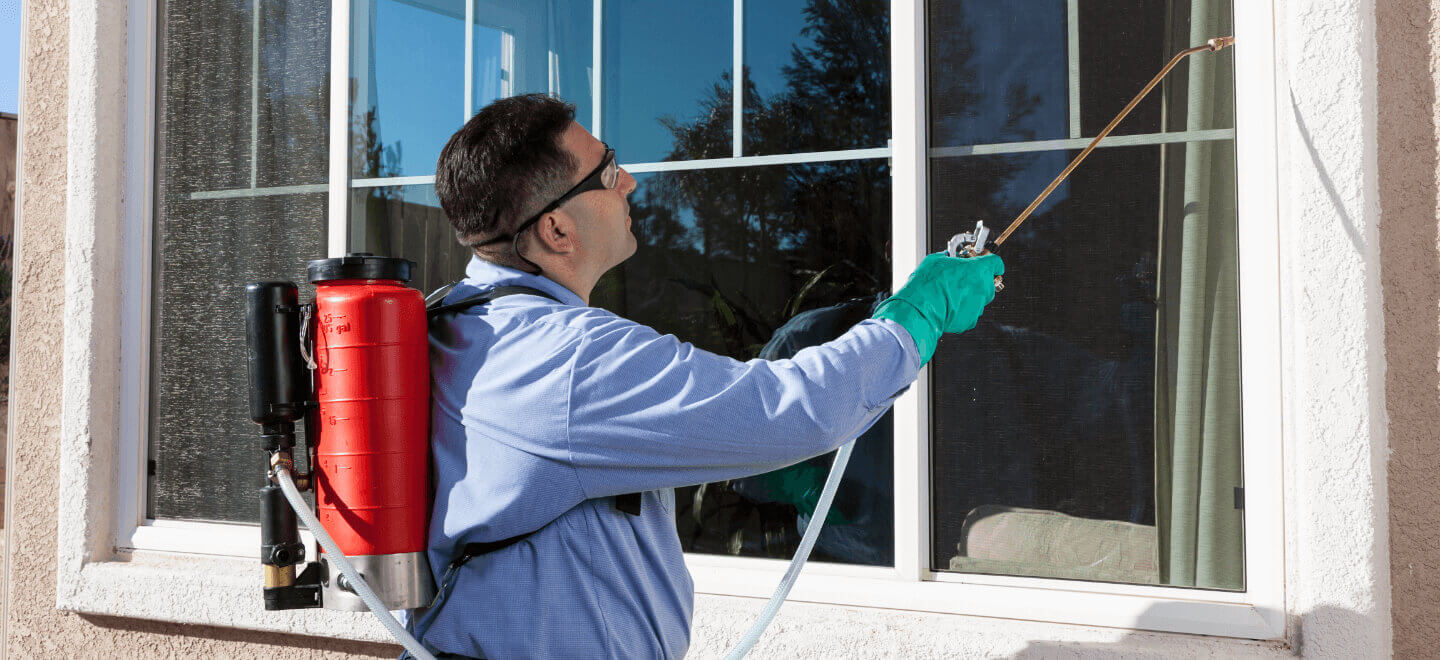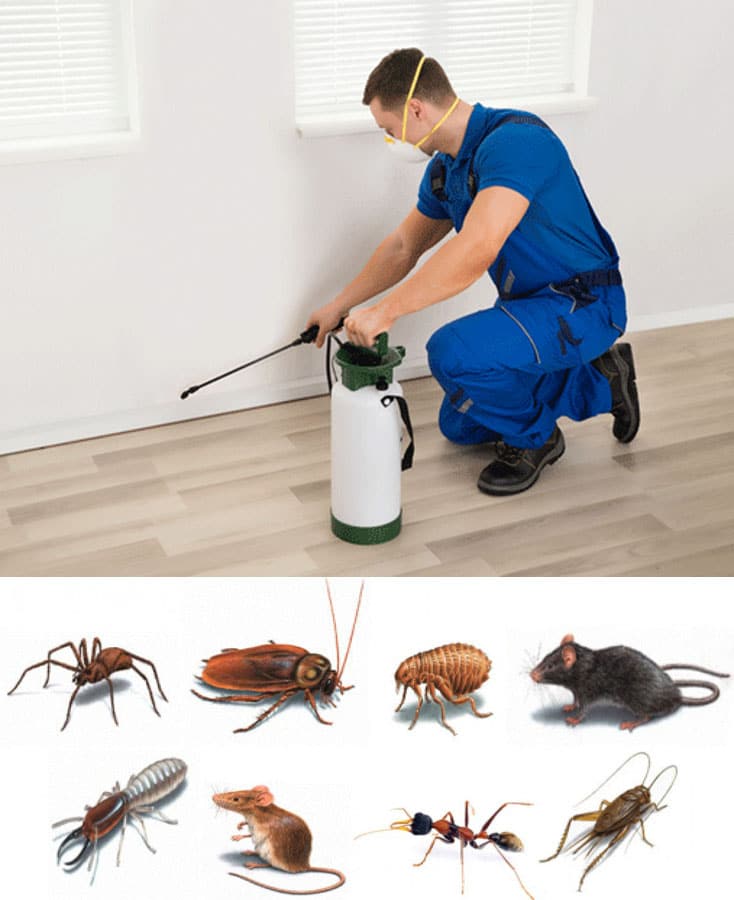Pest Control Chicago LLC: Your Go-To for Reliable Rat Removal Chicago Illinois
Pest Control Chicago LLC: Your Go-To for Reliable Rat Removal Chicago Illinois
Blog Article
Exploring Various Methods and Strategies for Comprehensive Insect Control in Residential Spaces
The landscape of bug control in residential spaces has evolved significantly, demanding a complete understanding of various methodologies that can be employed for reliable monitoring. Typical chemical therapies, while efficient, are increasingly being complemented by eco-friendly alternatives and Integrated Pest Monitoring (IPM) methods. House owners should consider preventative measures, such as normal surveillance and exact insect identification, to keep a healthy environment. Nonetheless, the genuine obstacle hinges on striking a balance between efficiency and security-- an expedition that exposes the nuances of each technique and its implications for lasting living.
Comprehending Insect Control Fundamentals
Reliable pest control is necessary for preserving a healthy and safe living setting. Understanding the fundamentals of parasite control involves acknowledging the kinds of pests that typically get into household spaces, the potential dangers they posture, and the relevance of preventative measures. Common home bugs consist of rats, pests, and various other unwanted animals that can endanger health, damages residential property, and cause wellness concerns.
A crucial primary step in pest control is identifying the specific pests present. This can involve inspecting areas such as kitchens, attics, and cellars, where insects are likely to grow. As soon as recognized, it is critical to understand their routines, breeding cycles, and liked settings, which can notify proper control techniques.
Preventive measures are basic to efficient insect management. These include securing access factors, maintaining sanitation, and lowering clutter to eliminate concealing places. In addition, appropriate food storage space and waste monitoring can considerably decrease the attraction of a home for insects.

Conventional Chemical Therapies
Amongst the numerous parasite control strategies, conventional chemical treatments have long been utilized to deal with invasions in domestic spaces. These treatments usually include the application of chemical pesticides created to get rid of bugs such as bugs, rodents, and other unwanted microorganisms. The effectiveness of these chemicals can vary, depending on the kind of pest, the solution of the chemical, and the approach of application.
Typical classes of conventional chemical treatments consist of insecticides, rodenticides, fungicides, and herbicides, each customized to deal with certain insects. Insecticides, for instance, might target ants, termites, or roaches, while rodenticides are specifically created to regulate rodent populations. These chemicals are frequently available in numerous types, including lures, sprays, and granules, enabling homeowners adaptability in application.
In spite of their effectiveness, typical chemical therapies raise issues relating to potential poisoning to people, pets, and helpful organisms in the setting. It is critical for property owners to meticulously comply with application standards and safety precautions to minimize dangers. Integrated Bug Monitoring (IPM) techniques can enhance these therapies, making sure an extra holistic technique to pest control while taking full advantage of efficiency and safety in property setups.
Eco-Friendly Insect Control Options
Environmentally friendly pest control choices are getting appeal as homeowners seek much safer and extra lasting choices to conventional chemical therapies. These approaches focus on the wellness of both residents and the atmosphere, lessening the influence of parasite control techniques.
One widely taken on environment-friendly strategy is using all-natural repellents derived from vital oils, such as peppermint and citronella. These oils not only prevent bugs however additionally offer pleasant aromas for interior rooms. Moreover, diatomaceous planet, a powder made from fossilized algae, acts as an all-natural pesticide by harming the exoskeletons of bugs upon call, resulting in dehydration.
One more efficient technique involves advertising biodiversity in backyards and yards. Presenting useful bugs, such as ladybugs and lacewings, can normally regulate pest populations (Chicago pest control for restaurants). Furthermore, employing catches made from biodegradable products can assist catch and remove parasites without creating damage to the community
Regular maintenance, such as securing access points and proper hygiene, further improves the effectiveness of green insect control. Property owners can take aggressive steps to avoid infestations, guaranteeing a more sustainable living environment while successfully managing pest-related concerns.
Integrated Insect Administration Strategies
Applying integrated bug management (IPM) approaches provides a thorough method to pest control that stresses avoidance and lasting solutions. IPM incorporates multiple tactics, focusing on understanding insect actions, life cycles, and ecological dynamics to lessen parasite populaces effectively. This complex strategy prioritizes non-chemical approaches, such as biological control, habitat control, and social techniques, to decrease reliance on chemicals.
A fundamental aspect of IPM is keeping an eye on and recognizing pests precisely. This involves normal evaluations and the facility of action limits to identify when intervention is required. By recognizing the details parasites influencing residential environments, targeted interventions can be employed, decreasing the probability of unnecessary pesticide applications.
One more essential part of IPM is enlightening home owners concerning the relevance of cleanliness and maintenance practices. By fostering an environment that discourages parasite problems-- such as securing entrance points and managing moisture-- homeowners can significantly minimize the danger additional hints of parasite problems. Furthermore, when chemical controls are considered necessary, IPM supporters for using the least harmful options to reduce ecological effect. With these techniques, IPM not visit this page only addresses existing bug issues but additionally promotes sustainable techniques that advertise long-lasting pest monitoring success.
Preventative Steps for Residence
To fend off prospective pest invasions, homeowners must take on a positive approach that highlights preventative actions. This begins with preserving a well organized and tidy home, as mess and food particles attract bugs. Chicago pest control for restaurants. Frequently vacuuming, sweeping, and cleaning down surfaces can considerably minimize the threat of infestations
Furthermore, securing access factors is essential. House owners need to inspect windows, doors, and foundation fractures for voids that can allow insects access to the home. Using caulk and climate removing can effectively block these entryways.
Proper food storage is one more important action. Saving food in impermeable containers and promptly tidying up spills or crumbs helps discourage rodents and insects.
Furthermore, managing exterior settings can prevent pests from intruding on property areas. House owners must make sure that drain systems are working well, and landscaping is kept tidy. Cutting trees and hedges away from your home and removing standing water can further lessen parasite environments.

Conclusion
In verdict, reliable bug control in domestic areas necessitates a diverse technique that incorporates conventional chemical treatments with green practices and Integrated Insect Management techniques. By focusing on preventative actions, such as maintaining tidiness and securing access factors, homeowners can considerably minimize bug events.
Understanding the basics of insect control includes acknowledging the types of bugs that commonly invade domestic areas, the prospective dangers they find this present, and the value of precautionary procedures.A critical first step in pest control is identifying the specific pests present. Integrated Pest Management (IPM) strategies can complement these therapies, making certain an extra all natural technique to pest control while maximizing efficacy and safety and security in household setups.
Carrying out integrated pest monitoring (IPM) strategies provides a thorough approach to pest control that emphasizes avoidance and lasting options.In final thought, efficient insect control in residential rooms requires a diverse approach that combines traditional chemical therapies with environment-friendly practices and Integrated Pest Monitoring techniques.
Report this page